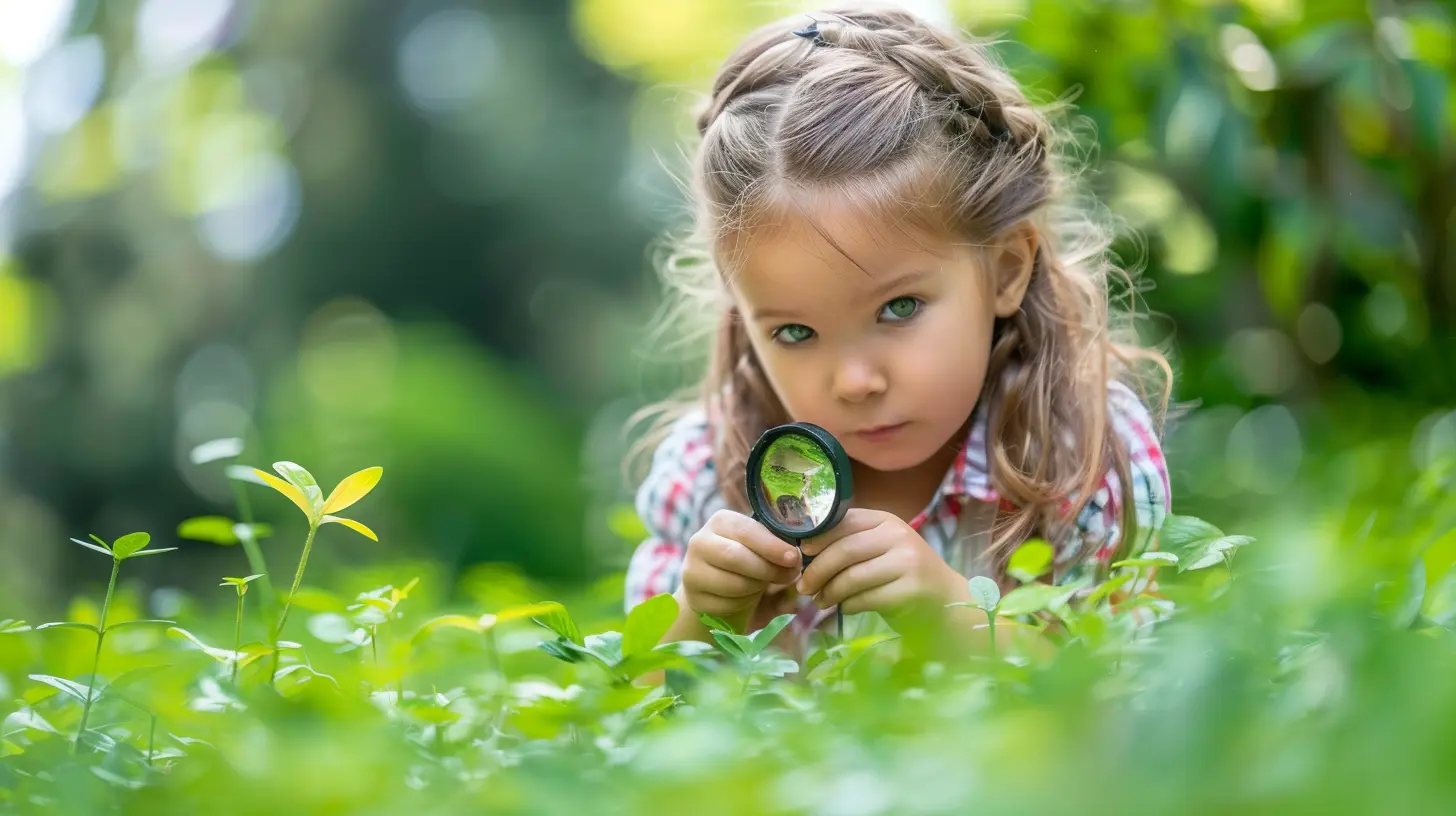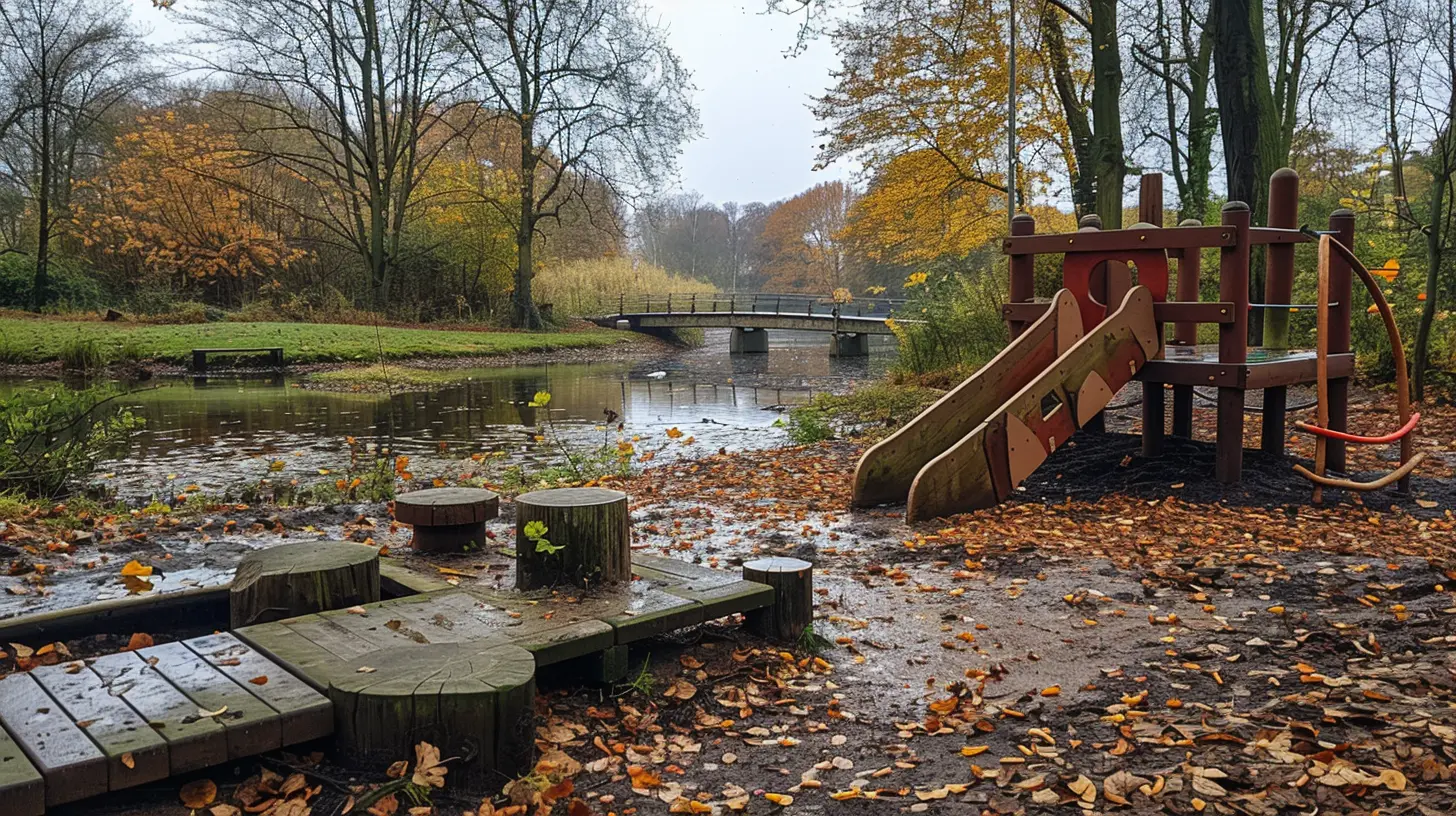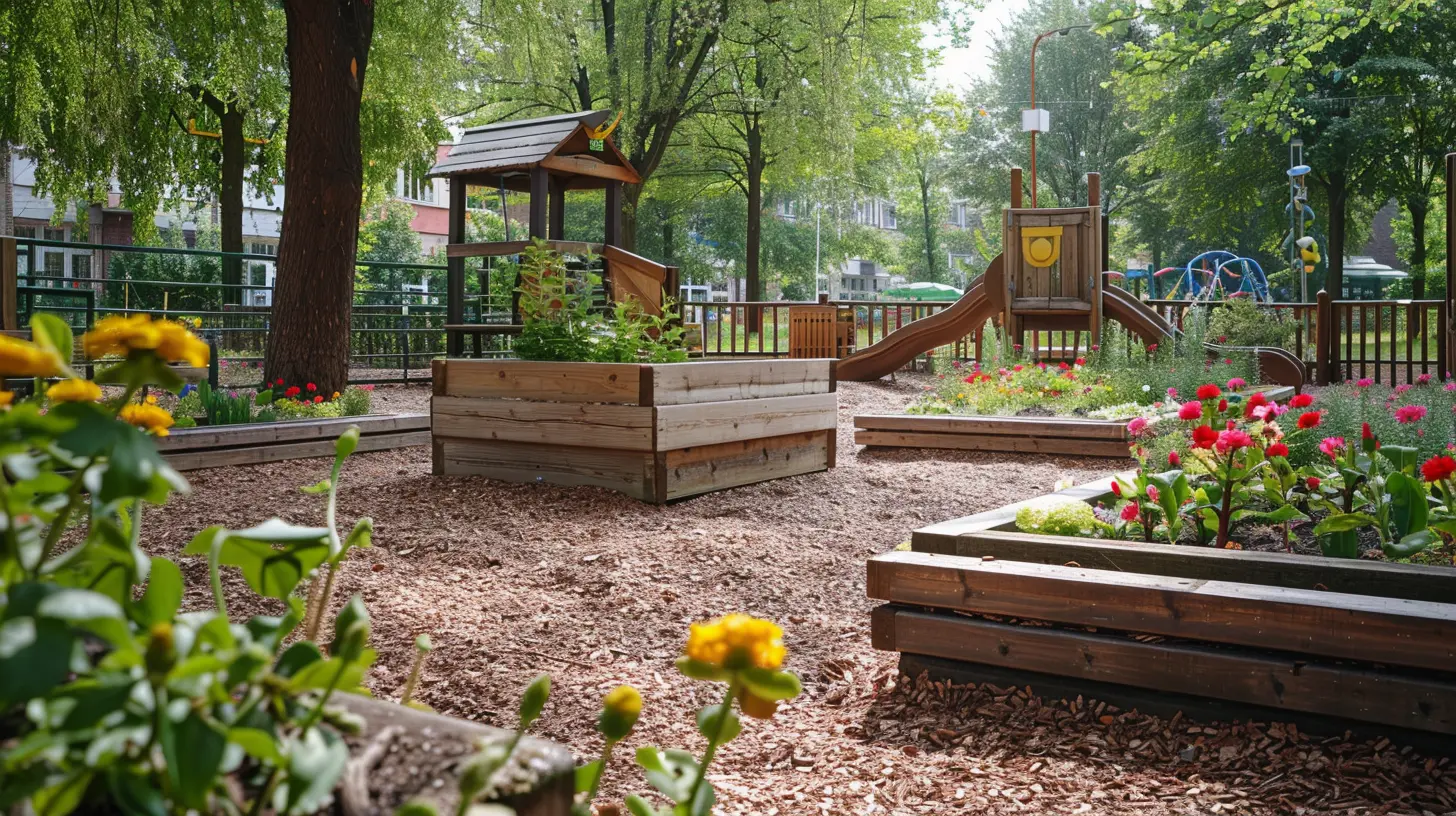The Role of Nature and Outdoor Play in Cognitive Growth
7 October 2025
There’s something magical about the great outdoors, isn’t there? The fresh air, wide-open spaces, and the feeling of being connected to something bigger than ourselves. But aside from the emotional and physical benefits, have you ever stopped to think about how nature plays a significant role in our cognitive growth, especially for children?
For years, psychologists and educators have delved deep into understanding how outdoor play influences the brain. And spoiler alert — it’s not just about burning off energy! In this article, we’ll explore how engaging with nature impacts cognitive development, why outdoor play is essential, and the science behind it. Ready to dive in? Let’s go.

Why Cognitive Growth Matters
Before we jump into the fun stuff (aka outdoor play), let’s first understand what cognitive growth actually means. In simple terms, cognitive development refers to how we learn, think, explore, and figure things out. It’s the process of acquiring knowledge and developing mental abilities like memory, problem-solving, and decision-making.For children, cognitive growth is fundamental because it forms the foundation for all future learning and functioning. It’s what helps kids understand the world around them, learn new skills, and eventually become independent thinkers.
But here’s the million-dollar question: How does nature and outdoor play tie into this?

Nature and the Brain: The Science Behind It
You might be wondering, "What does running around outside have to do with brain development?" Well, quite a lot actually!When children (and adults, for that matter) spend time in natural environments, their brains are exposed to a more diverse range of stimuli than they would experience indoors. The sights, sounds, smells, and textures of the outdoors create a rich sensory environment that stimulates brain activity.
Researchers have found that nature has a calming effect on the brain. It reduces stress, improves attention span, and even boosts creativity. In fact, studies have shown that spending time in nature can improve cognitive functions like memory, focus, and problem-solving. Think of it as a mental reset button — stepping outside helps clear the mental fog and brings back clarity.
Attention Restoration Theory (ART)
One popular theory that supports the relationship between nature and cognitive functioning is the Attention Restoration Theory (ART). According to ART, our brains can become fatigued from prolonged periods of focused attention (like working on a computer or studying). Nature offers a soft fascination — think of a gentle breeze or rustling leaves — that doesn’t demand the same level of concentration and allows the brain to rest and restore its cognitive resources.In other words, nature provides a break for our overworked minds, which in turn helps with problem-solving, creativity, and learning. Who knew a simple walk in the park could do so much?

Outdoor Play: A Cognitive Powerhouse
Now that we’ve established how nature benefits the brain, let’s talk about outdoor play specifically. Outdoor play is so much more than just a way for kids to run around and burn energy (though that’s important too). It’s a key component in promoting cognitive growth.1. Encourages Problem-Solving and Critical Thinking
When children engage in outdoor play, they are constantly faced with new challenges and obstacles that they need to figure out. Whether it’s deciding how to climb a tree, building a fort, or navigating a playground, outdoor environments encourage kids to think on their feet. Unlike structured indoor activities, outdoor play is often more open-ended, allowing children to use their creativity and problem-solving skills.They learn to assess risks, make decisions, and figure out solutions on their own. It’s like solving a puzzle in real time!
2. Promotes Social Interaction and Communication
Outdoor play isn’t just a solo activity. It often involves interacting with other children, which means kids are also developing their social skills. They learn how to negotiate, share, and collaborate with others. All of these interactions contribute to cognitive growth because they require kids to think about others' perspectives, make compromises, and communicate effectively.It’s like a mini social experiment every time they step outside, and all of these experiences help shape their understanding of the world and how to interact with it.
3. Boosts Spatial Awareness and Motor Skills
Climbing trees, jumping over puddles, or balancing on a log — these activities require kids to be aware of their surroundings and control their bodies in space. This boosts both their spatial awareness and motor skills, which are critical aspects of cognitive development.For example, when a child climbs a jungle gym, they’re not just using their muscles — their brain is working hard to judge distances, plan movements, and coordinate their actions. This kind of physical and mental engagement helps enhance brain connections that are crucial for later skills like reading and mathematics.

Nature vs. Screen Time: The Cognitive Battle
In today’s digital age, children are spending more time indoors, glued to screens, and less time exploring the outdoors. The rise of technology has created a significant shift in how kids play and learn, but is this change beneficial or harmful to cognitive growth?The Impact of Screen Time
While technology isn’t inherently bad, excessive screen time has been linked to negative outcomes in cognitive development. For one, it limits opportunities for imaginative play and problem-solving, which are often found in outdoor activities. Additionally, too much screen time can lead to shorter attention spans, increased anxiety, and disrupted sleep patterns — all of which can hamper cognitive growth.On the other hand, nature offers a stark contrast. It provides a dynamic, ever-changing environment that encourages kids to explore and engage their senses. Unlike screens, nature stimulates real-world problem-solving and creativity, providing the kind of brain-boosting experiences that are essential for cognitive development.
Finding Balance
The key isn’t to ban screens altogether but to find a healthy balance between indoor and outdoor play. Encourage outdoor activities that allow kids to immerse themselves in the natural world. Whether it’s a trip to the park, a nature hike, or simply playing in the backyard, these experiences are invaluable for their cognitive growth.The Long-Term Benefits of Nature Exposure
The positive effects of nature and outdoor play don’t stop at childhood. Studies show that individuals who spend more time in nature throughout their lives have better mental health, lower levels of stress, and improved cognitive functioning even into old age. In fact, some research suggests that regular exposure to nature can help reduce the risk of cognitive decline and dementia.Nature is like a lifelong brain booster — it nurtures cognitive development in childhood and protects cognitive health as we age.
How Can Parents Encourage Outdoor Play?
Now that we know the importance of nature and outdoor play in cognitive growth, how can we incorporate more of it into our daily lives? Here are some simple ways to encourage outdoor activities:1. Make It a Routine
Set aside regular time for outdoor play. It could be as simple as a daily walk after dinner, a weekend hike, or a visit to the local park. Consistency is key!2. Let Kids Lead the Way
Allow children to choose their outdoor activities. Whether they want to explore a new trail, climb a tree, or build a sandcastle, letting them take the reins encourages creativity and problem-solving.3. Limit Screen Time
Set reasonable limits on screen time to ensure that kids have ample opportunities for outdoor play. Encourage them to engage in hands-on activities that require physical movement and mental engagement.4. Create Outdoor Spaces at Home
You don’t need to live near a national park to benefit from nature. Create an outdoor-friendly space in your backyard or balcony where kids can play and explore freely.5. Be a Role Model
Children are more likely to enjoy outdoor activities if they see their parents and caregivers participating. So, get outside with them! Whether it’s gardening, playing catch, or going for a bike ride, lead by example.Conclusion: Nature as a Cognitive Playground
The role of nature and outdoor play in cognitive growth is undeniable. From problem-solving skills to social interactions, spending time in nature provides a wealth of opportunities for children to engage their minds in ways that indoor environments simply can’t match.In a world where digital distractions are becoming more prevalent, it’s more important than ever to encourage outdoor play and reconnect with nature. After all, the natural world is the ultimate cognitive playground!
So, the next time you’re wondering how to boost your child’s cognitive growth, just remember: sometimes, the best classroom has no walls.
all images in this post were generated using AI tools
Category:
Cognitive DevelopmentAuthor:

Jenna Richardson
Discussion
rate this article
1 comments
Hawk Williams
Nature enhances cognitive development significantly!
October 8, 2025 at 2:45 AM

Jenna Richardson
Thank you for your comment! Indeed, exposure to nature plays a crucial role in enhancing cognitive development by promoting creativity, problem-solving skills, and overall mental well-being.


